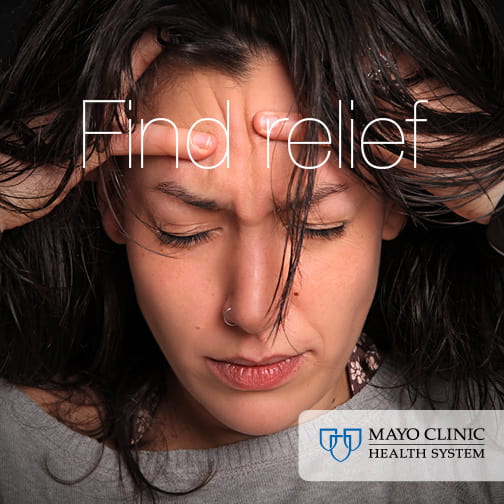Does caffeine treat or trigger headaches?

Many people ask whether caffeine can treat or trigger a headache. The answer is that caffeine can do both.
Caffeine can provide relief for a headache.
During a headache, blood vessels swell, tighten or go through other changes, causing an increase in blood flow around the brain. This increased blood flow pressures surrounding nerves, which send pain messages to the brain. This brings on the headache.
Caffeine has vasoconstrictive properties, meaning that blood vessels narrow to restrict blood flow, thereby alleviating the pain. Also, when caffeine is taken in combination with pain medicines, such as aspirin, ibuprofen or acetaminophen, it increases the absorption and strength of the medication to provide faster relief.
Caffeine can trigger a headache.
When caffeine is consumed regularly, the body becomes dependent on its effects. And because caffeine narrows the blood vessels that surround the brain, when consumption is stopped, the blood vessels enlarge. This causes an increase in blood flow around the brain and pressures surrounding nerves. This can then trigger what is known as a caffeine withdrawal headache. These headaches can last for a couple of weeks because it takes the body a while to adjust to not having caffeine in its system.
What should you do?
Pay attention to how much caffeine you consume and how it affects you. Keep track of when your headaches occur and what seems to help or hinder them. If you have frequent headaches, consider slowly reducing your caffeine intake and consuming it in moderation.
Kelli Tornstrom is a nurse practitioner in Neurology in La Crosse, Wisconsin.



